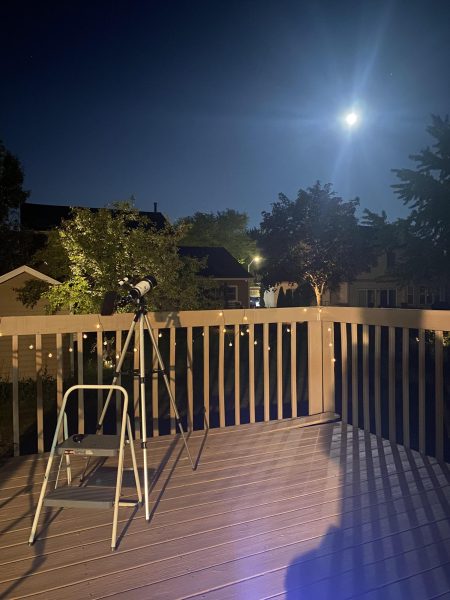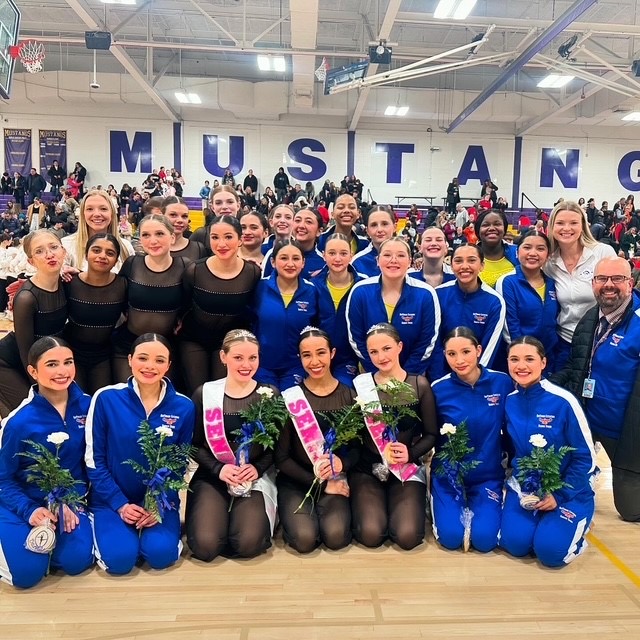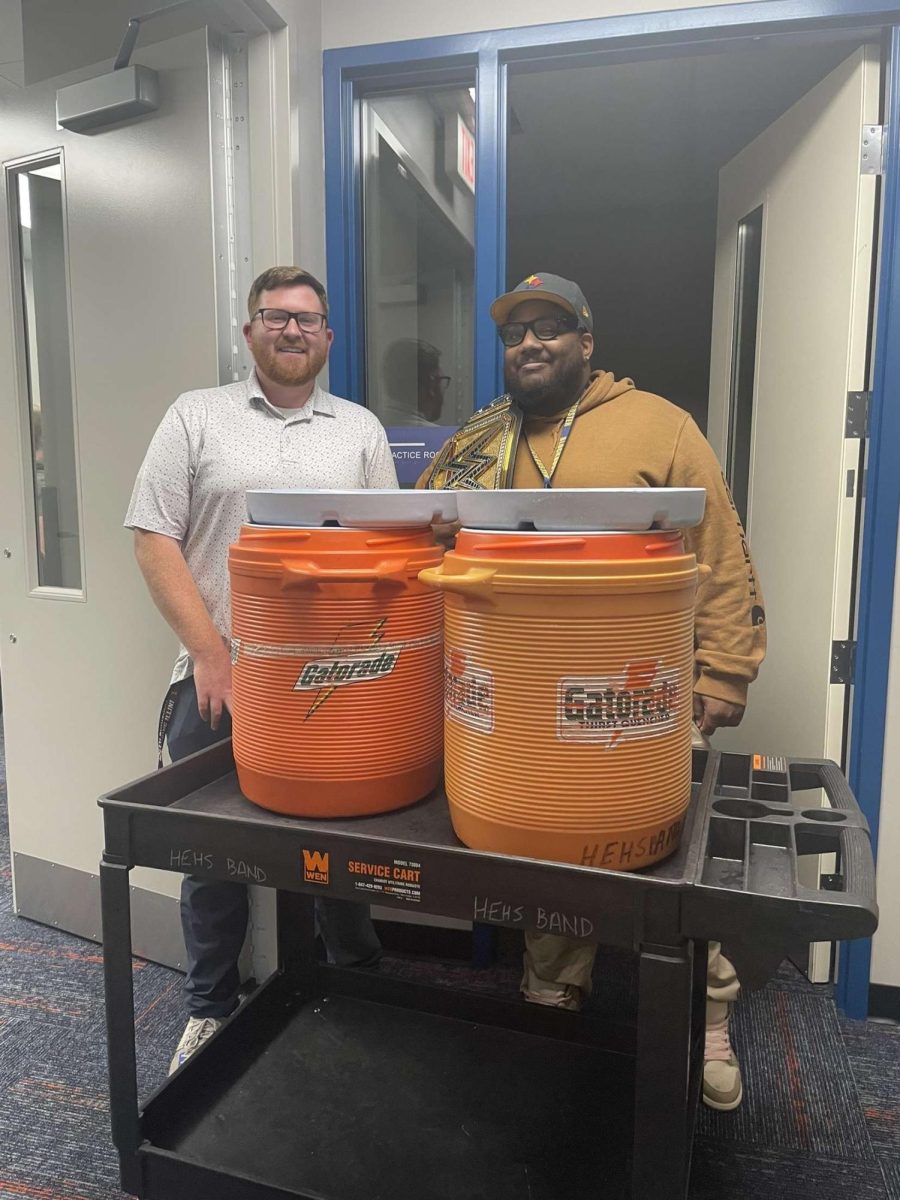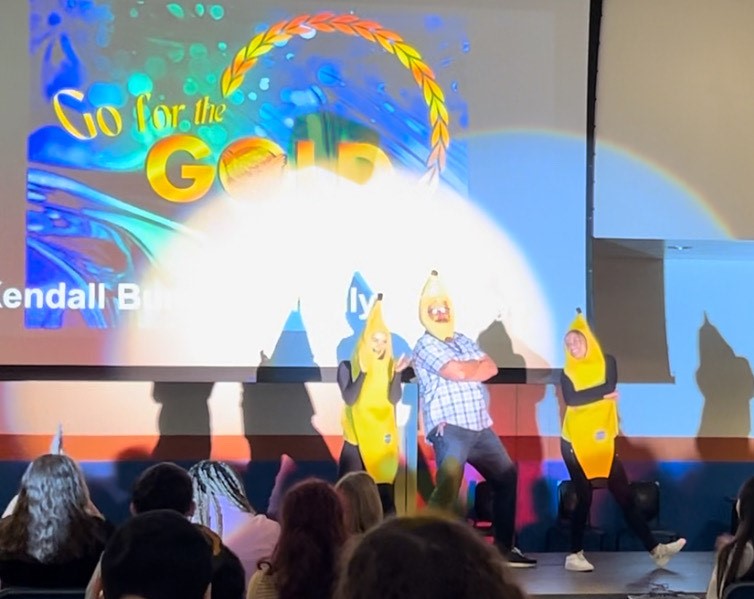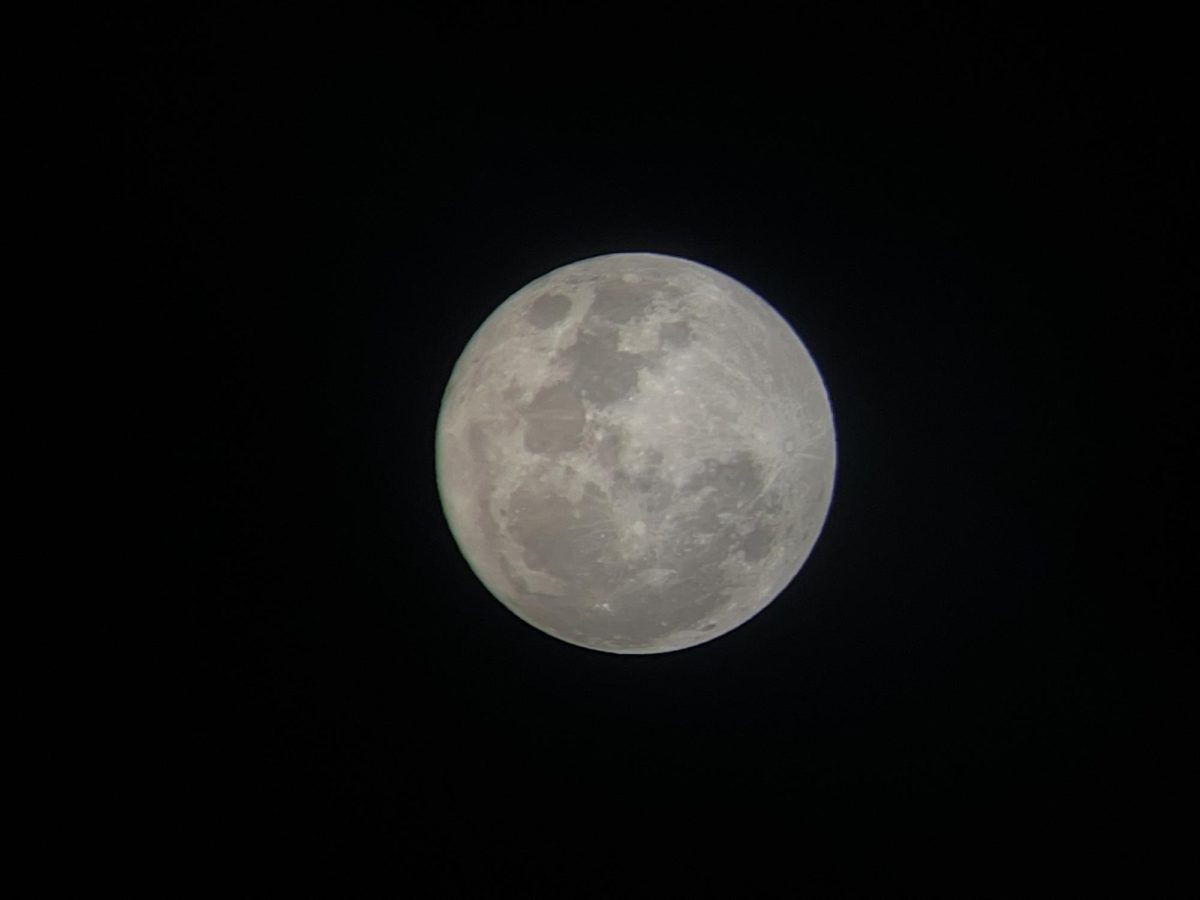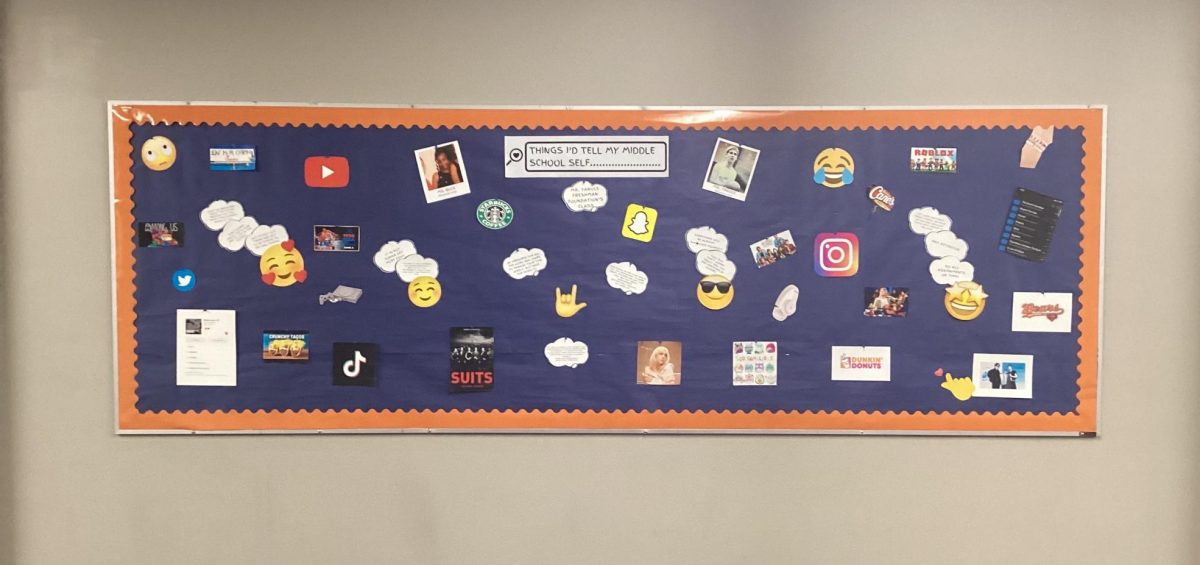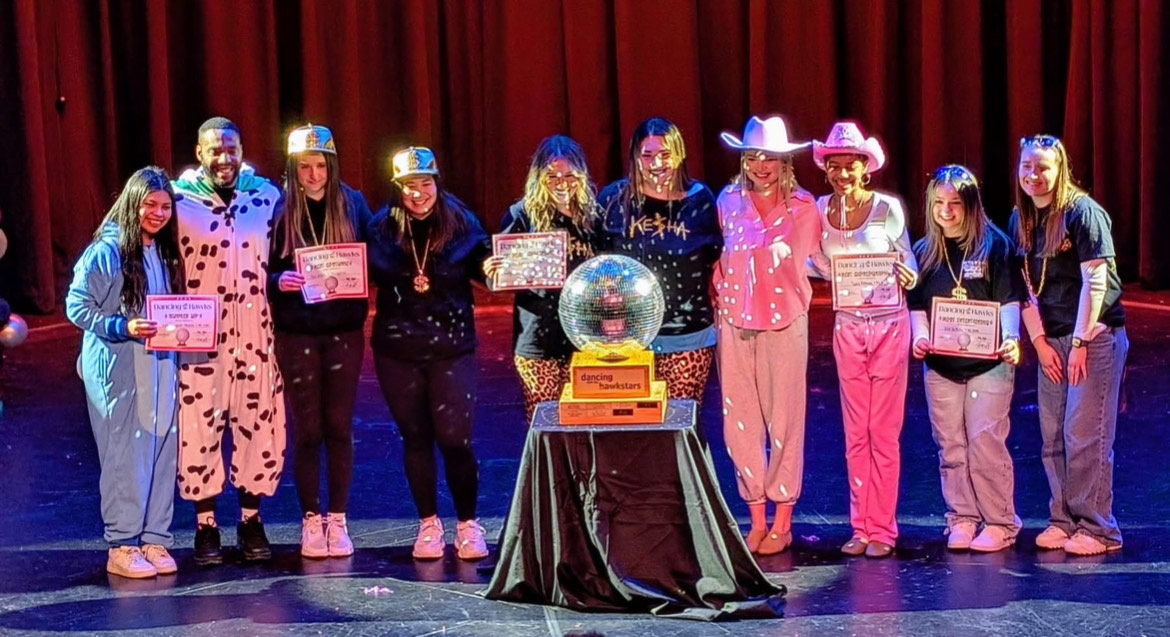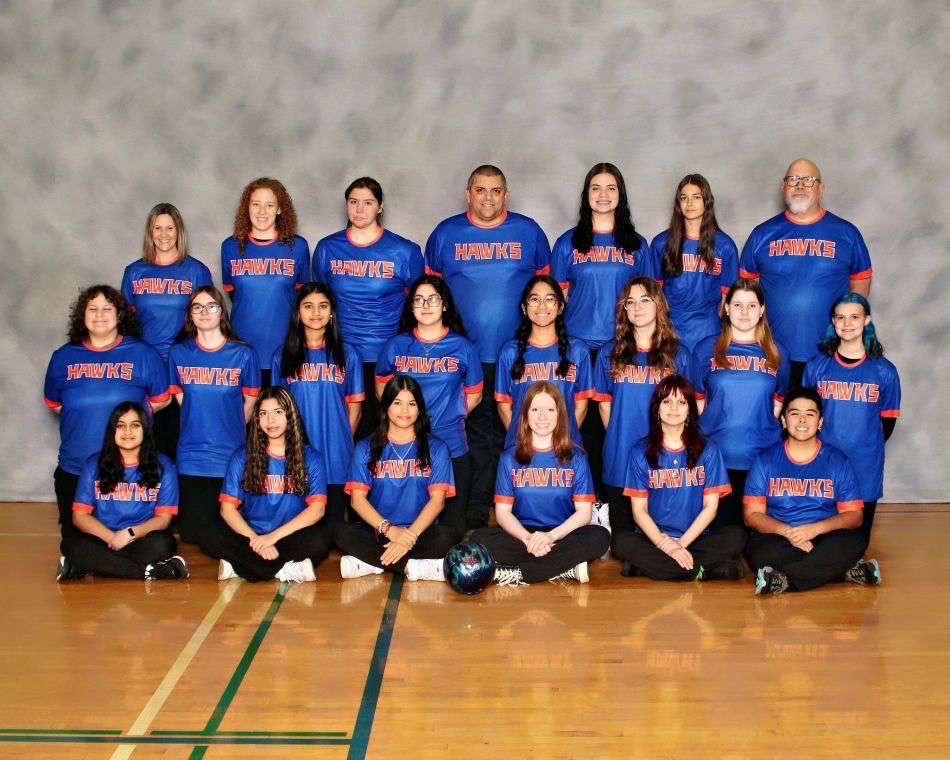The Blue Moon is a rare astronomical event, happening once every two to three years. It may be misunderstood, as the name in itself and astronomy in general may be confused with other things. Tyler C. Michie, an astronomy teacher at HEHS, weighs in on the topic.
Q: What interests you about astronomy?
A: I have always been interested in space for as long as I could remember, and I think it’s just the magic that it’s just never ending. We learn things about space every single year, and it’s ever-changing, and the discoveries that we have made are beyond our wildest imaginations. The truth is stranger than fiction all the time in the world of astronomy, which is just incredible. The things we have realized are true about the place we exist in are mind blowing, and the coolest part is that there are many more things that we haven’t discovered yet, just waiting to be realized. I just think it’s the most fun thing to talk about.
Q: How does astronomy enrich people’s lives?
A: My students learn there is a difference between astrology and astronomy and that it took until the ancient Greeks to break those two things. We’ve always tried to look at the sky for meaning, and now that we know that astrology and astronomy are separate things, astronomy is just a way for us to understand where we are. We are a part of this thing that is so big, bigger than anything our brains are capable of considering. But studying space is also studying time. Anytime you look into space, you’re looking back in time because it takes light time to get to us. If we look at the moon, we’re looking at it from what it was a second and a half ago. If we look at the sun, that’s it eight minutes ago, and if we look at Neptune, that’s it four hours ago. So studying the sky is studying deep time as well, studying the evolutions of star systems, planetary systems, evolutions of galaxies, and we can figure out where we are going from here.
Q: What is the significance of the Blue Moon, and why is it called Blue Moon?
A: The blue moon happens very rarely because it’s a consequence of a full lunar cycle taking 29 and ½ days. Our moon takes 29 and ½ Earth days to go around Earth, and because of that, it goes through the cycle of phases in that time, and that’s a chunk of time we’ve been paying attention to for millions of years. Ever since we’ve had eyeballs good enough to see the moon, we’ve noticed that it goes through this cycle. If the moon took 15 days to go around Earth, we would have 15-day months. If the moon took 70 days to go around the Earth, we would have 70-day months. Because one cycle is 29 and ½ days long, it means that sometimes, if there’s a full moon on the first of the month, we’ll get another full moon on the 30th of the month, or if it is a month with 31 days, you might get one on the 2nd and then another on the 31st. [The Blue Moon] doesn’t happen very often, which is why we have the phrase “once in a blue moon”.
Q: How can someone new get into astronomy?
A: On a basic level, go outside and look up! Astronomy is the oldest of all sciences because it is the easiest. We have been doing astronomy before any of the other “-ologies” you could think of, and Astronomy was so important to early civilizations because the coming of the seasons helped us as hunter-gatherers, and was a literal matter of life and death. Notice that there are things changing about the sky every single night. The moon looks different, the planets are positioned differently, the sun makes a different arc, and as we go through the year, the constellations change position in the sky as well. Take it a step further: get a pair of binoculars, start checking out the moon, start checking out the planets. A step further than that [could be the following]: get a telescope, join a local astronomy club, get on social media and start following things like NASA and all those space pages. Learn about all the different launches, all the different spacecraft going up. The fact that we have astronauts going up all the time is really amazing, and it’s probably the most exciting time to be into astronomy.
Q: Lastly, what are the most important skills for astronomers, and how can we develop them?
A: The most important skill as an astronomer is curiosity. That’s all it is. Asking the why, the when, the where, the what; as long as you are infinitely curious and never let that go, you’re going to be a great astronomer. With all sciences, always following the evidence and make sure that what you’re doing is solid science-wise [is important]. Thinking outside the box [is important] because there are people like Isaac Newton, Albert Einstein, Galileo, Copernicus, and Stephen Hawking who have been like “You know what? I think we’ve been looking at this the entire wrong way” and who have turned up a whole new world that’s vastly different from what we’d been thinking the entire time.
Though the Blue Moon is over (returning May 31st, 2026), there are still many astronomical events to look forward to this year. September 29 marks the Harvest Moon, a full, bright moon that occurs at the start of fall. October 8 and 9 will display a marvelous Draconid meteor shower, an annual meteor shower near the Draco constellation. Most importantly, a big event to look forward to is the annular solar eclipse, happening on October 14.
